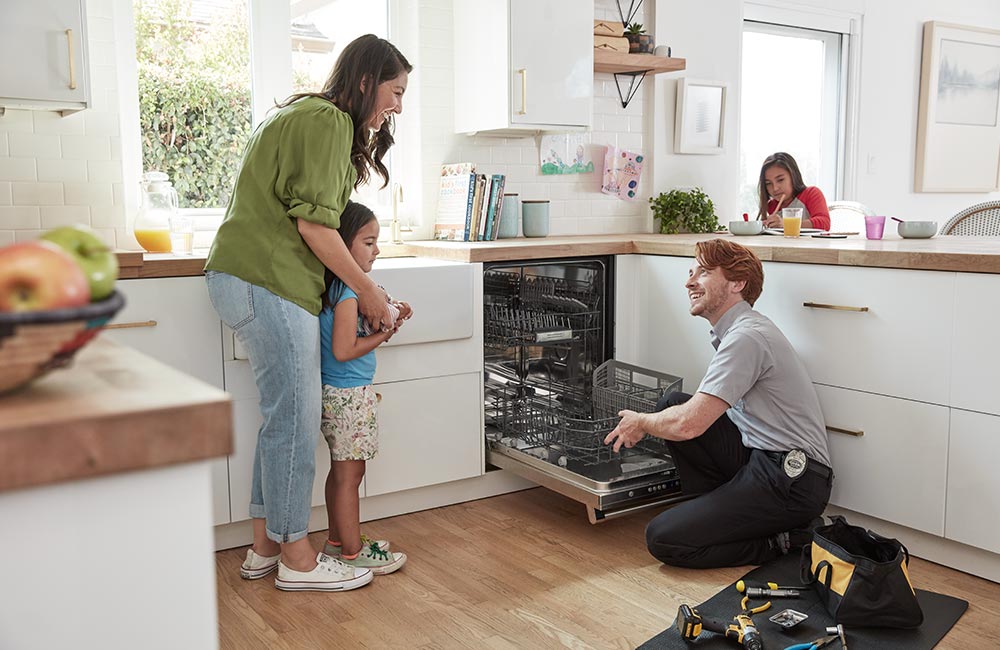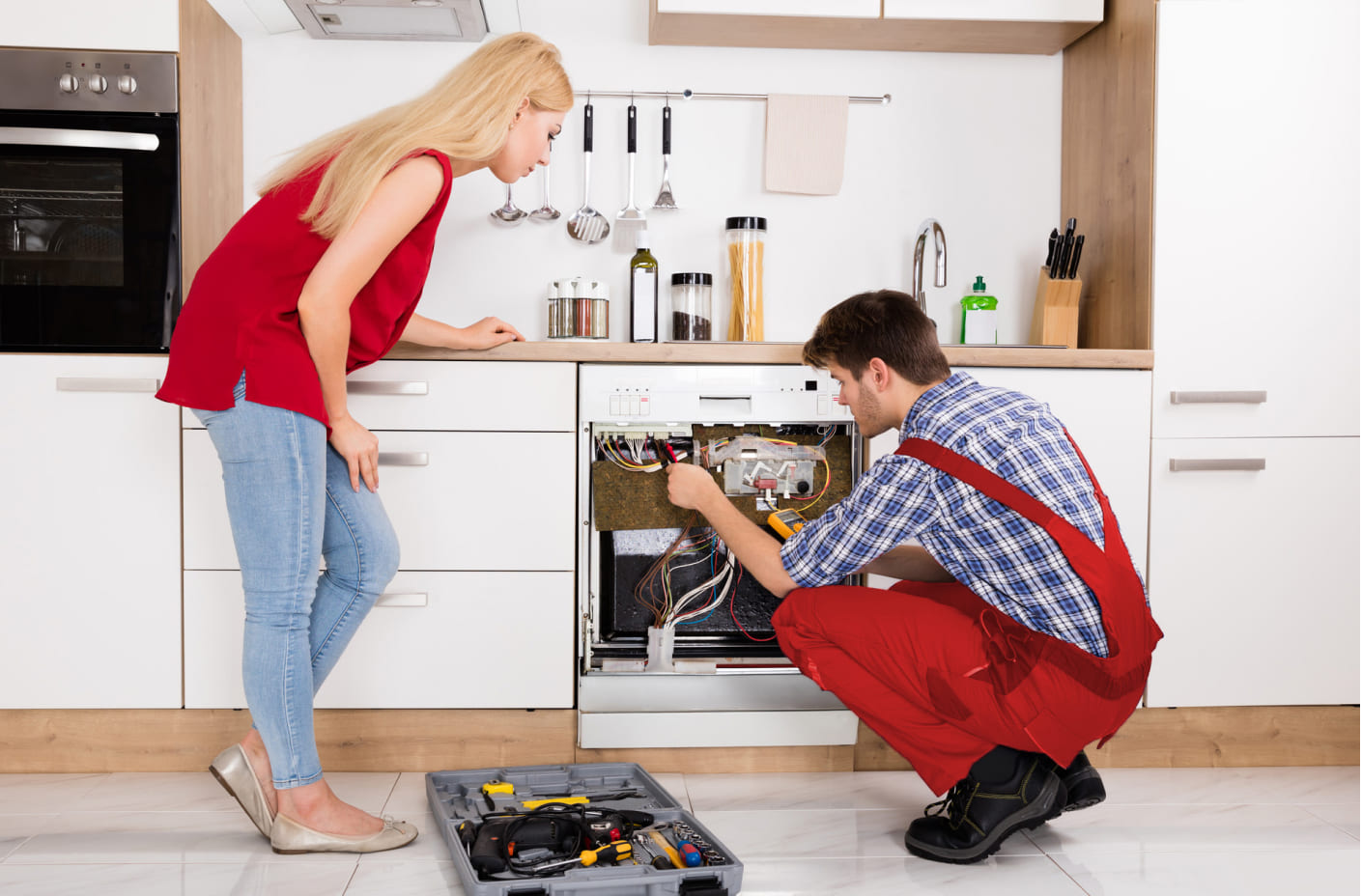How to Handle a Washer That Stops Draining – Dependable Refrigeration & Appliance Repair Service Washing Machine Repair
How to Handle a Washer That Stops Draining – Dependable Refrigeration & Appliance Repair Service Washing Machine Repair
Blog Article
The Ultimate Overview to Recognizing Appliance Repair in your home
When your fridge quits cooling or your stove rejects to warmth, it can feel frustrating. Understanding home appliance repair in your home can conserve you money and time. You'll learn to acknowledge signs, utilize essential tools, and adhere to an organized troubleshooting process. But prior to you start, there are crucial security preventative measures you require to take right into account. What are the most common problems, and exactly how can you repair them? Let's explore the basics.
Common Device Troubles and Their Symptoms
When your appliances begin breaking down, it's necessary to recognize the indicators early. Ignoring them can result in bigger problems and pricey repair work. For example, if your refrigerator isn't cooling effectively, you might see warm places or condensation creating. This might show a falling short compressor or an obstructed vent.Your dishwashing machine might show troubles with unclean meals or uncommon noises throughout cycles. If you listen to grinding or clanking, it's time to investigate.A washing maker that will not spin or drain can leave you with soaked laundry, recommending a clogged up drain or a malfunctioning pump.Lastly, if your stove's temperature level appears off or it takes forever to pre-heat, you may be dealing with a damaged thermostat. By staying sharp to these signs and symptoms, you can address issues before they escalate right into significant repairs.
Important Devices for Home Appliance Fixing
When you're tackling appliance repair services at home, having the right tools is important. Basic hand tools like screwdrivers and pliers will help you disassemble and fix different home appliances, while electric testing tools guarantee you're functioning safely with electrical wiring. Allow's discuss what you require to obtain started on your repair trip.
Standard Hand Tools
Having the right devices is necessary for effective appliance repair work at home. Begin with a reliable screwdriver collection, including both flathead and Phillips types, as screws prevail in device assembly. Pliers are also important; they assist with gripping, turning, and reducing cables or little parts. A pair of needle-nose pliers can get to limited spots conveniently. You'll require a great adjustable wrench for tightening or loosening up nuts and screws. An utility blade comes in handy for reducing through product packaging or insulation. Do not forget a tough workbench or surface area to safely organize your tools and parts. With these basic hand tools, you'll be well-prepared to deal with most home appliance repair work that come your means.
Electric Screening Instruments
Together with fundamental hand devices, electrical testing tools play a vital role in device repair work. These devices help you diagnose electrical problems and assurance home appliances function safely. A multimeter is vital; it determines voltage, existing, and resistance, allowing you to identify issues quickly. A non-contact voltage tester is an additional essential, allowing you find real-time cords without making direct contact, boosting your security. Clamp meters are fantastic for determining existing flow in cables without separating them, saving you time and initiative. In addition, circuit testers can quickly examine if electrical outlets are working correctly. By making use of these tools, you'll simplify your troubleshooting process and improve your repair abilities, making home appliance upkeep a great deal much easier.
Step-by-Step Overview to Diagnosing Device Issues
When your home appliance acts up, it can be irritating, yet diagnosing the problem doesn't need to be frustrating. You'll discover to determine usual troubles and use effective repairing strategies. Let's walk with the steps to get your appliance back in working order.
Usual Home Appliance Troubles

Troubleshooting Methods Discussed

Repairing Major Kitchen Area Home Appliances: A Closer Look
Have you ever wondered how to take on common problems with your kitchen home appliances? Repairing significant cooking area devices like refrigerators, ovens, and dishwashing machines can be simpler than you believe. Beginning by recognizing the problem-- whether it's a fridge not cooling or an oven that won't warm. Usually, a straightforward check here reset or inspecting the source of power can fix the issue.For fridges, tidy the condenser coils and inspect the door seals. If your stove's not home heating, inspect the home heating element and thermostat. Dish washers may just require a tidy filter or a reset to obtain them back in activity. Constantly unplug the home appliance prior to diving into fixings to guarantee your safety.Don' t forget to get in touch with the customer manual for certain repairing tips connected to your design. With a little perseverance and the right tools, you can confidently take on appliance repair work and conserve money in the procedure!

Troubleshooting Laundry Devices: Tips and Techniques
When your laundry home appliances start acting up, it can really feel overwhelming, but fixing them doesn't need to be a problem. Begin by checking the power supply. Verify the home appliance is plugged in and the electrical outlet is functioning. Next, inspect the door or lid button; a faulty button can protect against the maker from operating.For washers, if it's not rotating, inspect for out of balance loads. Redistributing the clothing could address the problem. If your clothes dryer isn't home heating, tidy the lint filter and check the air vent for blockages.Listen for uncommon sounds; they can indicate a trouble. If your home appliance is leaking, examine the pipes for splits or loosened connections. Paper any kind of error codes displayed on electronic screens, as they can assist you in recognizing the issue. Ultimately, consult the individual handbook for details repairing tips connected to your design.
Safety And Security Precautions to Take During Repairs
Before you start any kind of home appliance repairs, it's vital to focus on safety to avoid crashes or injuries. Initially, unplug the device or shut off the circuit breaker to assure no power reaches it while you function. Usage protected tools to reduce the threat of electric shock. Wear security goggles and gloves to protect on your own from sharp edges or debris (Dryer repair Oro Valley Dependable Refrigeration & Appliance Repair Service).Make certain your office is clean and well-lit, so you can see what you're doing. Maintain youngsters and pet dogs far from the location to prevent distractions and potential dangers. If you're managing gas home appliances, be extra mindful; look for leaks before proceeding.Take your time, and don't hurry with fixings. If you really feel unpredictable regarding any step, it's better to stop and research than to presume. Complying with these preventative measures will certainly aid produce a much safer environment for your do it yourself appliance repair work project
When to Call an Expert for Aid
Just how do you recognize if it's time to call in a professional for appliance fixings? If you have actually tried standard troubleshooting without success, it's a clear sign. If your appliance still won't begin or shows uncommon noises after resetting it, don't think twice to look for expert help.When you discover leaks, smoke, or shedding smells, focus on safety and call a professional promptly. These problems can cause more significant damages or pose risks to your home.Also, if your device is under service warranty, getting in touch with an expert is frequently the very best route. They can ensure that repairs won't void your service warranty, conserving you money in the lengthy run.Finally, if you're unsure or awkward with complex fixings, it's smart to leave it to the professionals. Keep in mind, dealing with complicated problems without the appropriate knowledge can result in pricey blunders. Count on a professional when in question!
Frequently Asked Questions
Exactly How Can I Avoid Home Appliance Issues in the Future?
To prevent device troubles in the future, you must do normal maintenance, check for deterioration, clean filters, and avoid overloading. Remaining proactive will assist extend their life expectancy and keep them running efficiently.
What Are one of the most Typical DIY Home Appliance Repair Service Mistakes?
You may neglect safety and security precautions, miss repairing steps, or make use of incorrect tools when attempting do it yourself appliance repair work. Hurrying the procedure or disregarding maker guidelines can bring about more substantial concerns and expensive blunders. Keep client and educated!
Exactly how Do I Know if a Component Needs Replacement?
You can inform if a part needs replacement by examining for unusual sounds, leakages, or irregular performance. If the home appliance battles to operate properly or shows noticeable damages, it's likely time for a replacement.
Can I Make Use Of Generic Components for Device Fixes?
Yes, you can make use of common parts for device repair services, yet identify they work - Kenmore Dryer Repair Oro Valley Dependable Refrigeration & Appliance Repair Service. Generic parts may save you money, but they can affect performance or durability, so consider your alternatives thoroughly prior to choosing
What Warranties Cover Appliance Repairs?
The majority of device service warranties cover repair work for manufacturing issues, yet they typically leave out damages from abuse. Inspect your service warranty terms meticulously, as some may need utilizing licensed technicians and initial components for coverage to remain legitimate.
Report this page